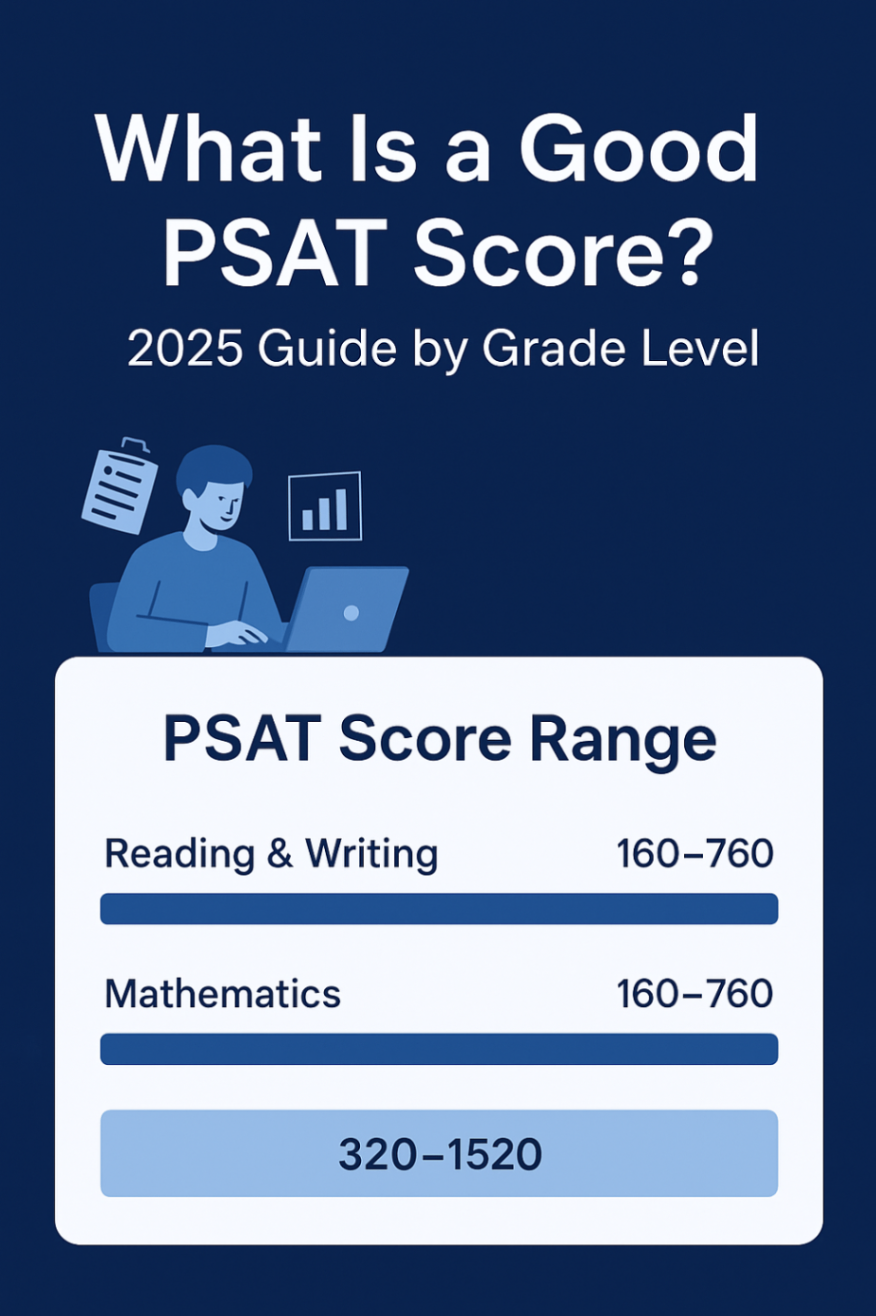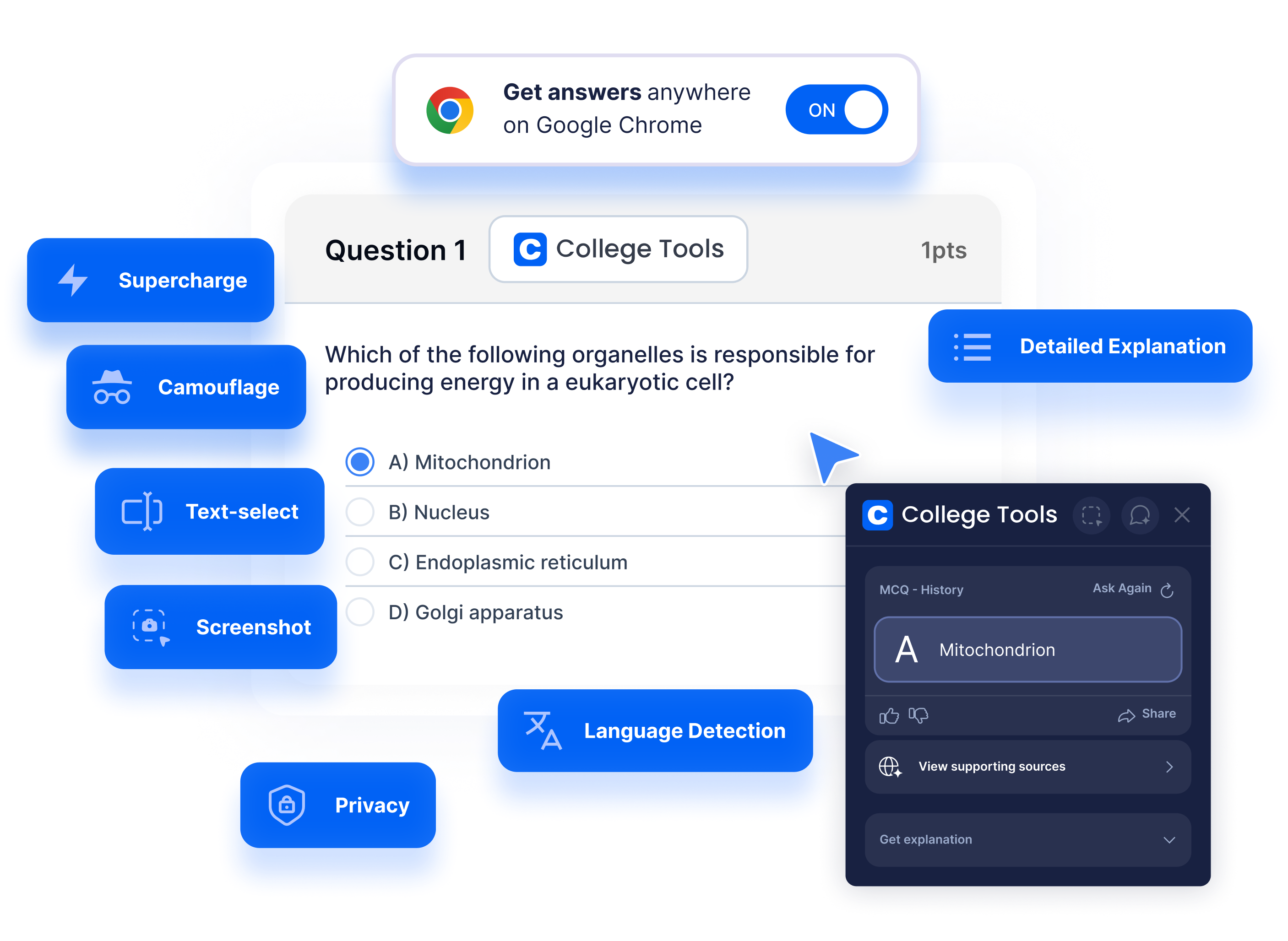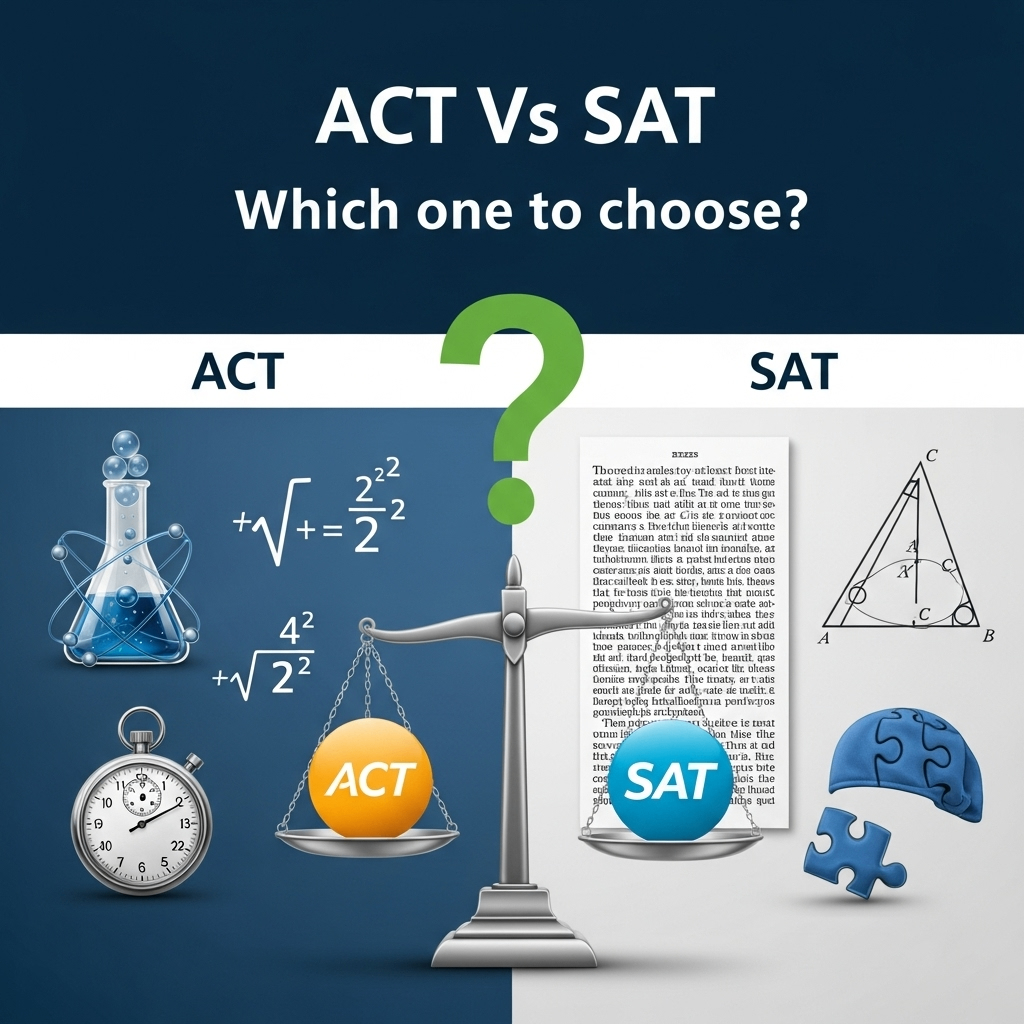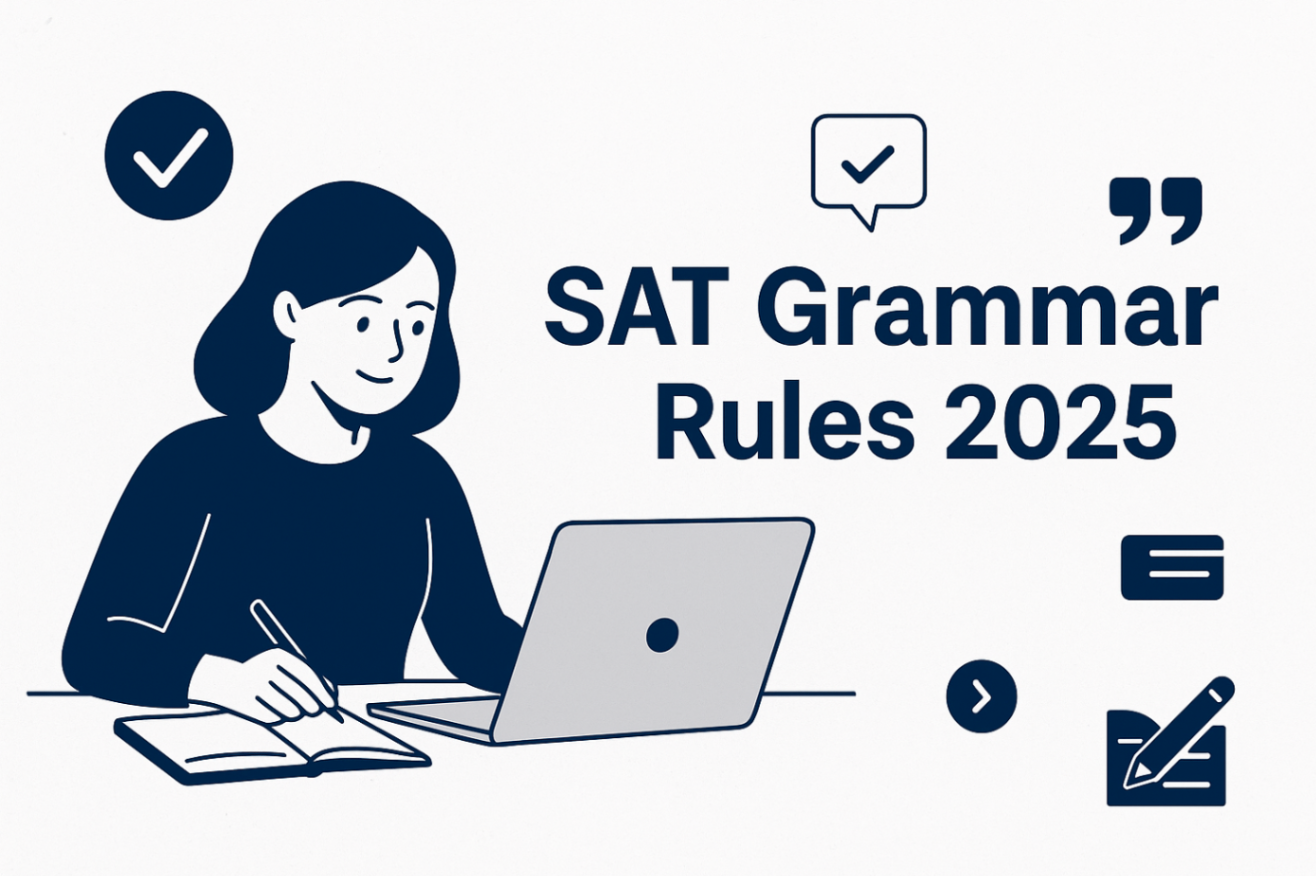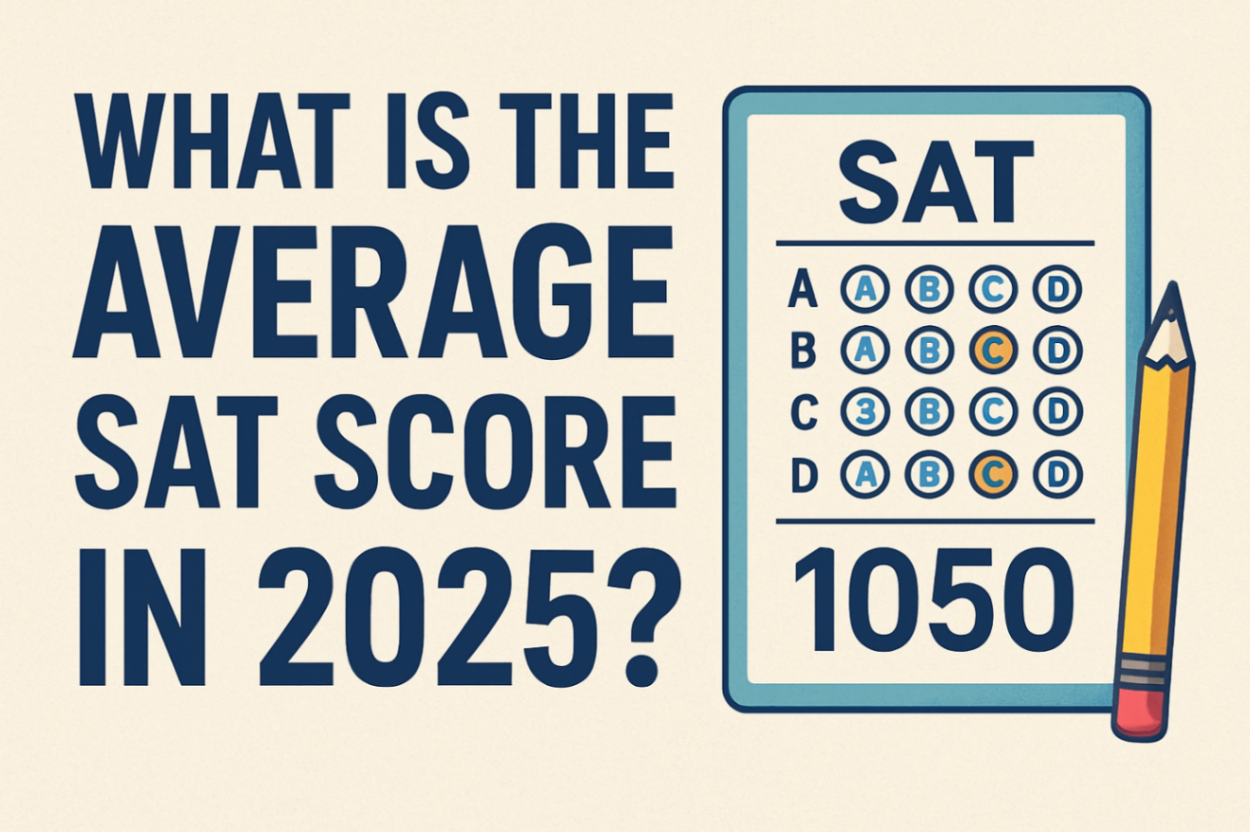Table of contents
- Understanding PSAT Scoring: The Basics
- What Is a Good PSAT Score for a Junior?
- What Is a Good PSAT Score for a Sophomore?
- What Is a Good PSAT Score for a Freshman?
- Percentile Rankings: Understanding Your PSAT Performance
- PSAT Score Goals by College Aspirations
- The National Merit Scholarship Program
- How PSAT Scores Predict SAT Performance
- Strategies for Improving Your PSAT Score
Understanding what is a good PSAT score can significantly impact your college preparation strategy and scholarship opportunities. The PSAT, or Preliminary SAT, serves as both a practice test for the SAT and a qualifying exam for prestigious scholarship programs. Whether you're a freshman taking your first standardized test or a junior competing for National Merit recognition, knowing what constitutes a strong score for your grade level is essential for setting realistic goals and tracking your progress.
For students looking to enhance their test preparation, our SAT Solver AI provides comprehensive practice questions and detailed solutions to help you excel on both the PSAT and SAT.
Understanding PSAT Scoring: The Basics
Before determining what is a good score on the PSAT, it's crucial to understand how the test is scored. The PSAT uses a scoring system that closely mirrors the SAT but with a slightly lower maximum score.
PSAT Score Range
The PSAT is scored on a scale of 320 to 1520 points, consisting of two main sections:
- Reading and Writing: 160-760 points
- Mathematics: 160-760 points
Your total PSAT score is the sum of these two section scores. This scoring range is approximately 80 points lower than the SAT's 400-1600 scale, reflecting that the PSAT is designed to be slightly less challenging than the actual SAT.
National Average PSAT Scores
The national average PSAT score hovers around 930, with typical section scores of approximately 470 for Reading and Writing and 462 for Mathematics. Understanding this benchmark helps you contextualize your own performance and set appropriate improvement goals.
What Is a Good PSAT Score for a Junior?
For juniors, the question of what is a good PSAT score for a junior becomes particularly important because this is the year that counts for National Merit Scholarship consideration. Junior year PSAT scores carry the most weight in the college preparation process.
Strong PSAT Scores for 11th Graders
What is considered a good PSAT score for juniors varies based on your college aspirations:
Solid Performance: - Score Range: 1200-1250 - Percentile: Approximately 70th-75th percentile - College Readiness: Indicates you're on track for competitive SAT scores - Outlook: Good foundation for state university applications
Very Strong Performance: - Score Range: 1300-1400 - Percentile: Top 10-15% of test-takers - College Readiness: Predicts SAT scores competitive for selective institutions - Outlook: Strong candidate for honors programs and merit scholarships
Excellent Performance (National Merit Range): - Score Range: 1450-1520 - Percentile: Top 1% of test-takers - College Readiness: Positioned for highly selective college admissions - Outlook: Competitive for National Merit Semifinalist recognition
National Merit Scholarship Considerations
What is a good PSAT score for a junior seeking National Merit recognition depends heavily on your state. Cutoff scores vary significantly by location, with states like New Jersey, Massachusetts, and California typically requiring 1470-1480, while smaller states may have cutoffs around 1410-1420.
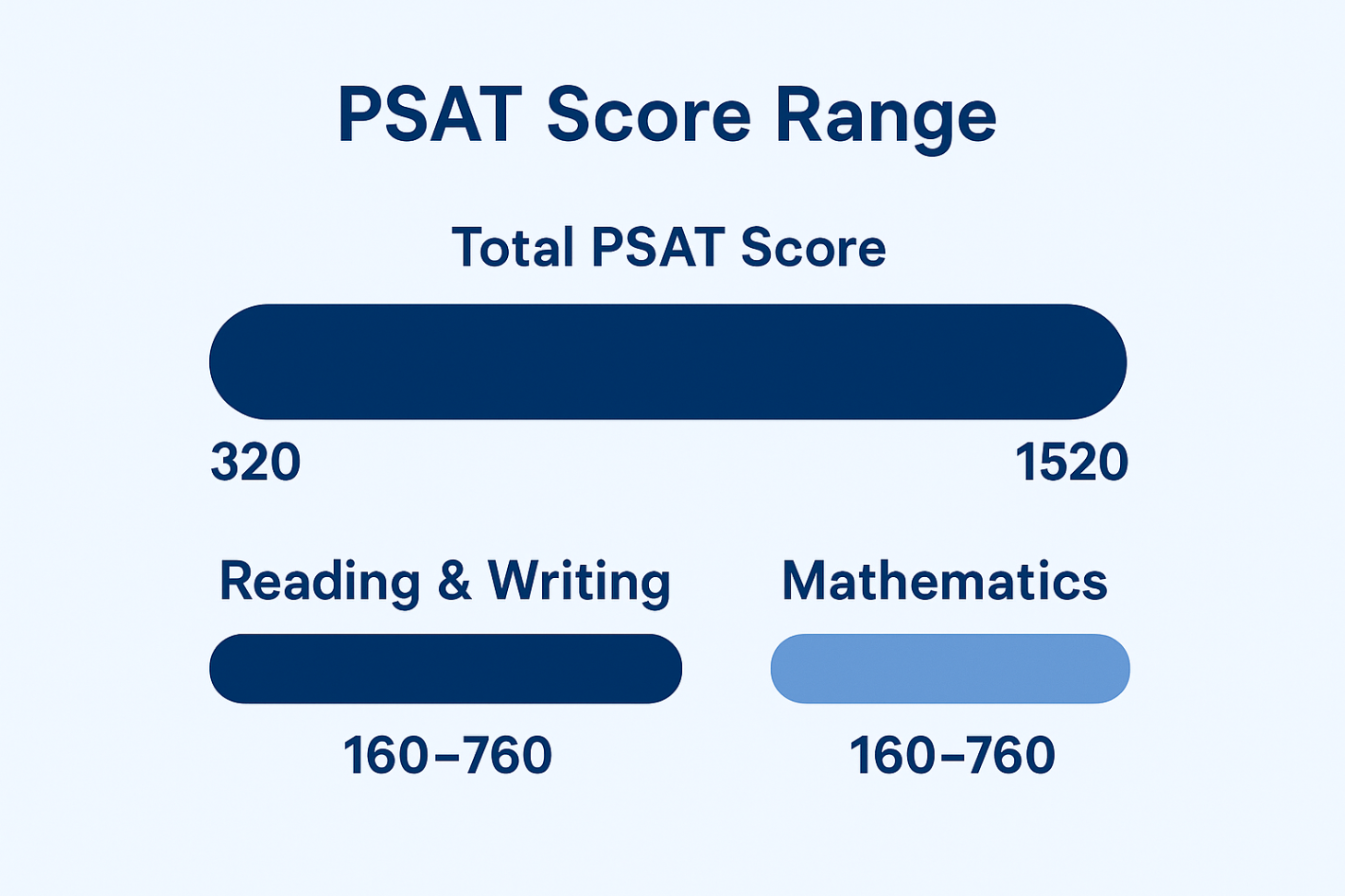
What Is a Good PSAT Score for a Sophomore?
The sophomore year PSAT provides valuable practice without the pressure of scholarship qualification. Understanding what is a good PSAT score for a sophomore helps set appropriate expectations and create effective study plans for junior year.
Recommended Scores for 10th Graders
What is a good PSAT score for 10th grade students should be evaluated differently than junior scores:
Above Average: - Score Range: 1060-1150 - Percentile: Top 25-50% of sophomores - Significance: Shows strong potential for improvement - Next Steps: Indicates readiness for targeted SAT preparation
Strong Performance: - Score Range: 1180-1290 - Percentile: Top 10% of sophomore test-takers - Significance: On track for National Merit consideration as a junior - Next Steps: Continue building skills with consistent practice
Exceptional Performance: - Score Range: 1300-1520 - Percentile: Top 3-5% of sophomores - Significance: Well-positioned for future National Merit qualification - Next Steps: Maintain momentum through junior year preparation
Using Sophomore PSAT Scores Strategically
Sophomore PSAT scores serve primarily as diagnostic tools. A score of 1100 as a sophomore indicates you're already ahead of most peers and have strong potential for reaching competitive junior-year scores with proper preparation.
What Is a Good PSAT Score for a Freshman?
For freshmen taking the PSAT, understanding what is a good PSAT score for a freshman involves recognizing that this is primarily a baseline assessment rather than a high-stakes exam.
PSAT Options for Freshmen
Freshmen can choose between two tests:
PSAT 8/9: - Score Range: 240-1440 - Purpose: Designed specifically for 8th and 9th graders - Timing: Available from fall through spring - Duration: 2 hours and 25 minutes
PSAT/NMSQT: - Score Range: 320-1520 - Purpose: Same test that juniors take for National Merit - Timing: Administered in October - Duration: 2 hours and 45 minutes
Strong Scores for Freshmen
What is considered a good PSAT score varies by which test you take:
For PSAT 8/9: - Above Average: 1000-1100 (75th percentile or higher) - Strong: 1100-1200 - Excellent: 1200+ (top tier of 9th graders)
For PSAT/NMSQT: - Solid Foundation: 900-1000 - Above Average: 1000-1100 - Strong: 1100-1200 (considering you're competing against older students)
Freshman Year Expectations
Since freshmen haven't completed high school coursework yet, what is a good PSAT score for a freshman should be evaluated with this context in mind. Scores in the 70th percentile or higher indicate strong potential, even if the absolute numbers seem lower than junior year targets.
Percentile Rankings: Understanding Your PSAT Performance
Percentile rankings provide crucial context for determining what is a good score on the PSAT. Your percentile indicates what percentage of students scored at or below your level.
Key Percentile Benchmarks
50th Percentile (Average): - PSAT Score: Approximately 950-1000 - Meaning: You scored better than half of test-takers - Assessment: Baseline performance with room for improvement
75th Percentile (Above Average): - PSAT Score: Approximately 1150-1200 - Meaning: You scored better than 75% of students - Assessment: Strong performance indicating solid college readiness
90th Percentile (Excellent): - PSAT Score: Approximately 1300-1350 - Meaning: You scored better than 90% of test-takers - Assessment: Exceptional performance positioning you for competitive colleges
99th Percentile (Outstanding): - PSAT Score: 1450-1520 - Meaning: You scored better than 99% of students - Assessment: Elite performance in National Merit range
PSAT Score Goals by College Aspirations
What is considered a good PSAT score depends significantly on your college goals. Different institutions have varying expectations for standardized test performance.
For Community Colleges and Open-Enrollment Schools
- Target PSAT Score: 800-950
- Rationale: Demonstrates basic college readiness
- SAT Prediction: 850-1000
For State Universities and Regional Colleges
- Target PSAT Score: 1000-1150
- Rationale: Competitive for admission to quality state schools
- SAT Prediction: 1050-1200
For Competitive State Flagships
- Target PSAT Score: 1200-1350
- Rationale: Strong positioning for selective state universities
- SAT Prediction: 1250-1400
For Highly Selective Private Universities
- Target PSAT Score: 1400-1520
- Rationale: Necessary for Ivy League and elite institution consideration
- SAT Prediction: 1450-1600
Understanding what is the average SAT score helps contextualize how PSAT performance translates to actual SAT outcomes and college admissions competitiveness.
The National Merit Scholarship Program
For many juniors, the most important aspect of what is a good PSAT score relates to National Merit Scholarship qualification. This prestigious program recognizes the top 1% of PSAT test-takers nationwide.
National Merit Recognition Levels
Commended Students: - National Recognition: Top 34,000 scorers nationally - Approximate Score: 1400-1440 - Benefits: Recognition on college applications, potential institutional scholarships
Semifinalists: - National Recognition: Top 16,000 scorers nationally - Approximate Score: 1450-1480 (varies significantly by state) - Benefits: Significant boost in college admissions, scholarship eligibility
Finalists: - National Recognition: Approximately 15,000 students - Requirements: High PSAT scores plus academic record, essay, and recommendations - Benefits: Eligible for National Merit Scholarships and college-sponsored awards
Scholarship Winners: - Awards: Approximately 7,000 students receive scholarships - Value: Ranging from one-time $2,500 awards to full-tuition scholarships - Impact: Substantial financial assistance for college education
State-by-State Variation
What is a good PSAT score for National Merit varies dramatically by state. For example, a 1460 might qualify in Texas but fall short in New Jersey. Research your state's historical cutoff scores to set appropriate targets.
How PSAT Scores Predict SAT Performance
One of the key purposes of the PSAT is predicting future SAT performance. Understanding this relationship helps answer what is a good score on the PSAT in terms of your ultimate standardized testing goals.
PSAT to SAT Score Prediction
The PSAT scoring scale is designed to predict SAT scores with reasonable accuracy:
- PSAT 1000 typically predicts SAT 1050-1100
- PSAT 1200 typically predicts SAT 1250-1300
- PSAT 1400 typically predicts SAT 1450-1500
- PSAT 1500 typically predicts SAT 1550-1600
This correlation helps students understand whether their current PSAT performance aligns with their SAT score goals and college admission targets.
Strategies for Improving Your PSAT Score
Regardless of what is a good PSAT score for your specific situation, there are proven strategies for improvement that work across all grade levels.
Start Early with Diagnostic Testing
Take practice tests to establish your baseline performance and identify specific areas needing improvement. Understanding your starting point is crucial for developing an effective study plan.
Focus on Weak Areas
Analyze your score report to identify content gaps and question types that challenge you. Concentrated practice in weak areas typically yields the fastest score improvements.
Build Strong Fundamentals
The PSAT tests core academic skills from middle and high school coursework. Strengthening your foundation in reading comprehension, grammar, and mathematics creates lasting improvement.
Practice with Official Materials
Use College Board practice tests and questions to ensure you're preparing with authentic test content. The digital format of the current PSAT makes familiarity with the testing platform essential.
Develop Test-Taking Strategies
Beyond content knowledge, effective time management, strategic guessing, and question analysis skills significantly impact performance. Practice these skills under timed conditions.
Conclusion: Setting Realistic PSAT Score Goals
Understanding what is a good PSAT score requires considering your grade level, college aspirations, and scholarship goals. While the national average hovers around 930, your personal target should reflect your specific circumstances and future plans.
For freshmen, what is a good PSAT score for a freshman means establishing a solid foundation, typically 900-1000 or higher. Sophomores should aim for what is a good PSAT score for a sophomore in the 1060-1180 range to stay on track for junior year success. Juniors need to understand what is a good PSAT score for a junior based on both college admissions and National Merit aspirations, typically targeting 1200 or higher.
Remember that PSAT scores don't appear on college applications, but they serve as valuable predictors of SAT performance and gateways to scholarship opportunities. Use your PSAT experience to identify areas for improvement, develop effective test-taking strategies, and build confidence for future standardized tests.
Whether you're taking the PSAT 8/9 as a freshman, the PSAT 10 as a sophomore, or the PSAT/NMSQT as a junior, approach the test with preparation and purpose. Set realistic goals based on your current grade level, work consistently to improve your skills, and view each testing experience as a stepping stone toward your ultimate college admission objectives.
With dedicated preparation, strategic studying, and the right resources, you can achieve PSAT scores that open doors to scholarship opportunities and position you for success on the SAT and in college admissions. Focus on consistent improvement, celebrate your progress, and use your PSAT scores as motivation to reach your full academic potential.
Frequently Asked Questions
What is considered a good PSAT score overall?
A good PSAT score is typically 1210 or higher, placing you in the top 10% of test-takers. For competitive colleges or National Merit consideration, aim for 1350 or above, while 1450-1520 is considered excellent and positions you among the very top students nationwide.
Is a 1300 a good PSAT score?
Yes, a 1300 PSAT score is very good, placing you in approximately the 88th-90th percentile nationwide. This score predicts an SAT score of 1350-1400, which is competitive for many state universities and selective colleges. For sophomores, a 1300 is exceptional and indicates strong potential for National Merit qualification as a junior.
What PSAT score do I need for National Merit?
National Merit qualification typically requires a PSAT score of 1450 or higher, though the exact cutoff varies by state. High-performing states like California, Massachusetts, and New Jersey often require 1470-1480, while smaller states may have cutoffs around 1410-1420. Only junior year PSAT scores count toward National Merit qualification.
How does my PSAT score compare to the SAT?
PSAT scores predict SAT performance with reasonable accuracy, typically within 50-100 points. The PSAT is scored on a 320-1520 scale compared to the SAT's 400-1600 scale. A PSAT score of 1200 generally predicts an SAT score of 1250-1300 with proper preparation between tests.
Should freshmen and sophomores worry about PSAT scores?
Freshmen and sophomores should view PSAT scores as diagnostic tools rather than high-stakes assessments. These early scores help identify strengths and weaknesses, guide study plans, and provide valuable practice. Only the junior year PSAT counts for National Merit Scholarships, so earlier tests offer low-pressure opportunities for improvement.

